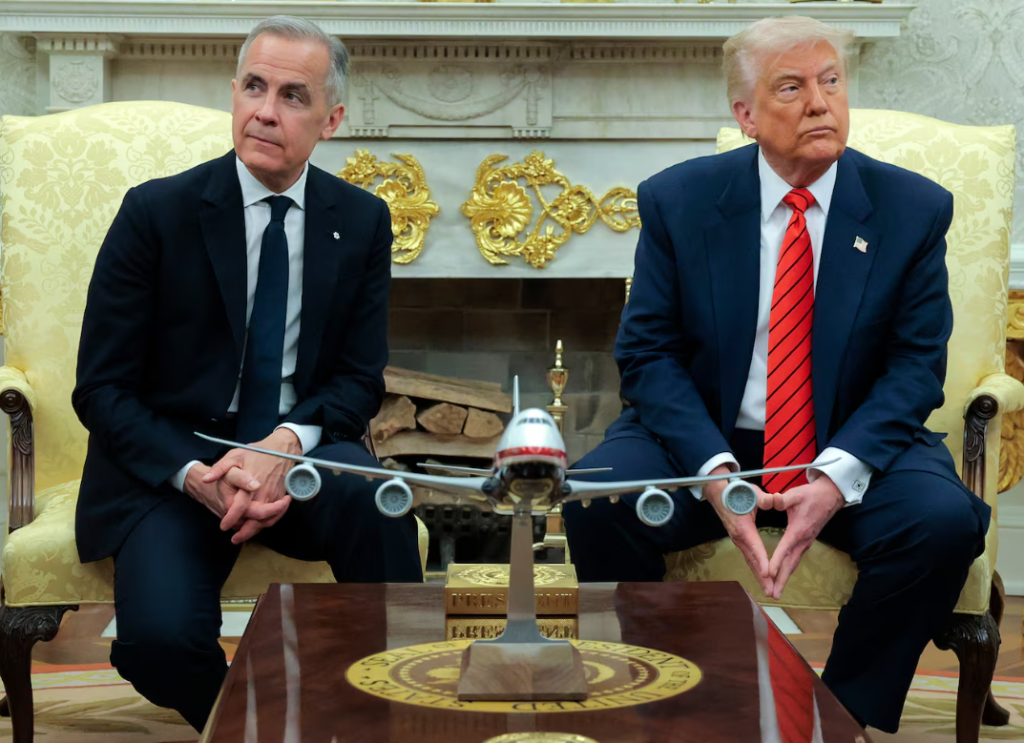How can Canada possibly win in an asymmetric trade war with the world’s most powerful country? As a former mediator (facilitator of negotiations), I’m curious what the negotiating options might be for each party to the conflict.
The May 31 edition of the Globe and Mail featured a story on how “in a conflict (with U.S.) fought as much on stage as in the marketplace, Canada can craft a savvy new script.” The Globe polled five different Canadian “experts”; from business and academia. Here’s a selection of their ideas:
Give headlines in exchange for leverage. “Offer performative wins that cost little – or even buy us leverage in return. The 2026 USMCA review will not be a legal negotiation; it will be a political performance. The Trump administration will seek loud symbolic victories.”
Create controlled chaos. In the fight for sovereignty, “control the story to control the choices. Canada should engineer an Artic crisis for trade leverage. Trump seeks narrative dominance through strategic chaos: disruption that traps opponents in constant instability and reactive decision-making. Control of the story means you define the debate, dictate choices and assign meaning to actions. Canada should take the narrative initiative. Traditional diplomacy is at a disadvantage in an asymmetric information war.”
Trade but diversify – “Oil is Canada’s unique economic hard power… Trade oil for removal of all tariffs, on all Canadian industries. Oil can be a tentpole under which all other sectors are sheltered.” At the same time, advance alternate paths to trade energy.
Leverage our markets. Trade access to Canadian markets in exchange for investment commitments (including potentially new ones from old foes; e.g., China). Adapt, given old rules and norms seem to no longer apply.
The best offense is a good defense. Use the tax system as protection for Canadian businesses damaged by the trade war; i.e., incentivise investment and re-investment in Canada.
Today’s personalities and events necessitate creative ways to expand the negotiations pie, counter zero-sum strategies, and what might William Ury’s (negotitions) trust menu look like for this conflict?


Speak Your Mind